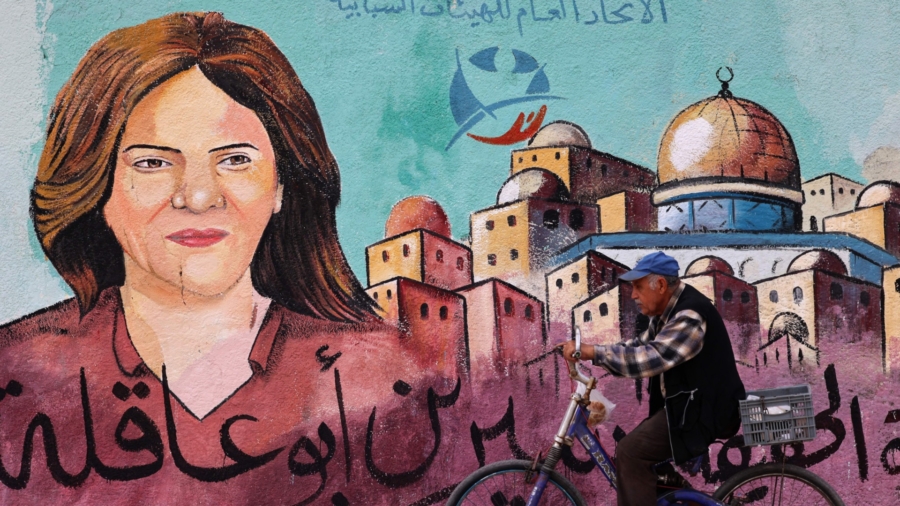The Israeli army announced on Monday that there’s a “high possibility” a soldier had misidentified Al-Jazeera journalist Shireen Abu Akleh as an armed militant when she was “accidentally” shot and killed earlier this year.
Abu Akleh worked for the network’s Arabic language channel and died on May 11 while on assignment covering an Israeli military raid in the West Bank city of Jenin. The 51-year-old Palestinian-American reporter was fatally shot in the head and was wearing a bullet-proof vest marked “press” at the time she was caught in the crossfire.
In the final conclusions of the Israel Defense Forces (IDF) official probe, the army noted that a task force assigned to investigate the shooting was unable to “unequivocally determine the source of the gunfire” that hit Abu Akleh, adding that it remains a “high possibility” that she was hit by “IDF gunfire that was fired toward suspects identified as armed Palestinian gunmen.”
The Israeli investigation didn’t rule out the possibility that Abu Akleh could be struck by armed Palestinian militants.
Multiple investigations into the incident have been conducted, including by the U.S. Department of State, which concluded that she was probably killed by fire from an Israeli position. Prior reports have noted that there’s no evidence to suggest she was intentionally targeted by Israeli forces, a claim made by some pro-Palestinians.

Rav-Aluf Aviv Kochavi, IDF chief of general staff, said the probe found that Abu Akleh “was present in the area during an exchange of fire that lasted for almost an hour” when the Israeli military carried out an operation intended to prevent Palestinian terrorism.
“Armed Palestinian gunmen shot wild and indiscriminate gunfire toward IDF soldiers and in every direction, endangering their lives,” said Aviv Kochavi, who reviewed the final conclusions of the investigation into Abu Akleh’s death.
“The IDF operates in immensely complex areas at a professional and high-quality level every night, while taking actions to avoid harming non-combatants. The IDF takes great efforts to this end, while working to allow press coverage and the freedom of the press,” he added, expressing “deep condolences” over the journalists’ death, calling it a “devastating incident.”
On July 4, the United States released a statement that independent, third-party investigators, couldn’t reach a definitive conclusion regarding the origin of the bullet that killed Abu Akleh after an “extremely detailed forensic analysis” of the case.
“Ballistic experts determined the bullet was badly damaged, which prevented a clear conclusion,” U.S. Department of State spokesman Ned Price said.
Ali Samoudi, a second on-the-ground Palestinian journalist who was wounded in the crossfire, has claimed that there were no Palestinian militants in the area and Israeli forces just “suddenly opened fire” at them.
“They didn’t ask us to leave and they didn’t ask us to stop [filming]. They fired at us. One bullet hit me and another hit [Abu Akleh]. They killed her in cold blood,” Samoudi told Reuters in May while being treated at a hospital in Jenin.
Walid al-Omari, Al-Jazeera’s local bureau chief, told the network that Israel’s final conclusions of the incident were an attempt to “avoid an independent criminal investigation.”
“It is clear that they are trying to perpetuate ambiguity and deception on the one hand, while at the same time clear themselves of wrongdoing by claiming that there was an exchange of fire,” he said.
On Monday, Abu Akleh’s family called for the U.S. government and President Joe Biden to lead an independent investigation, accusing the Israeli army of obscuring the truth after releasing its final conclusions.
“As expected, Israel has refused to take responsibility for murdering [Abu Akleh],” the statement reads. “We will continue to demand that the U.S. government follow through with its stated commitments to accountability,” it added.
The journalist’s family has repeatedly alleged Israel deliberately killed her, but they have failed to provide any clear evidence.

